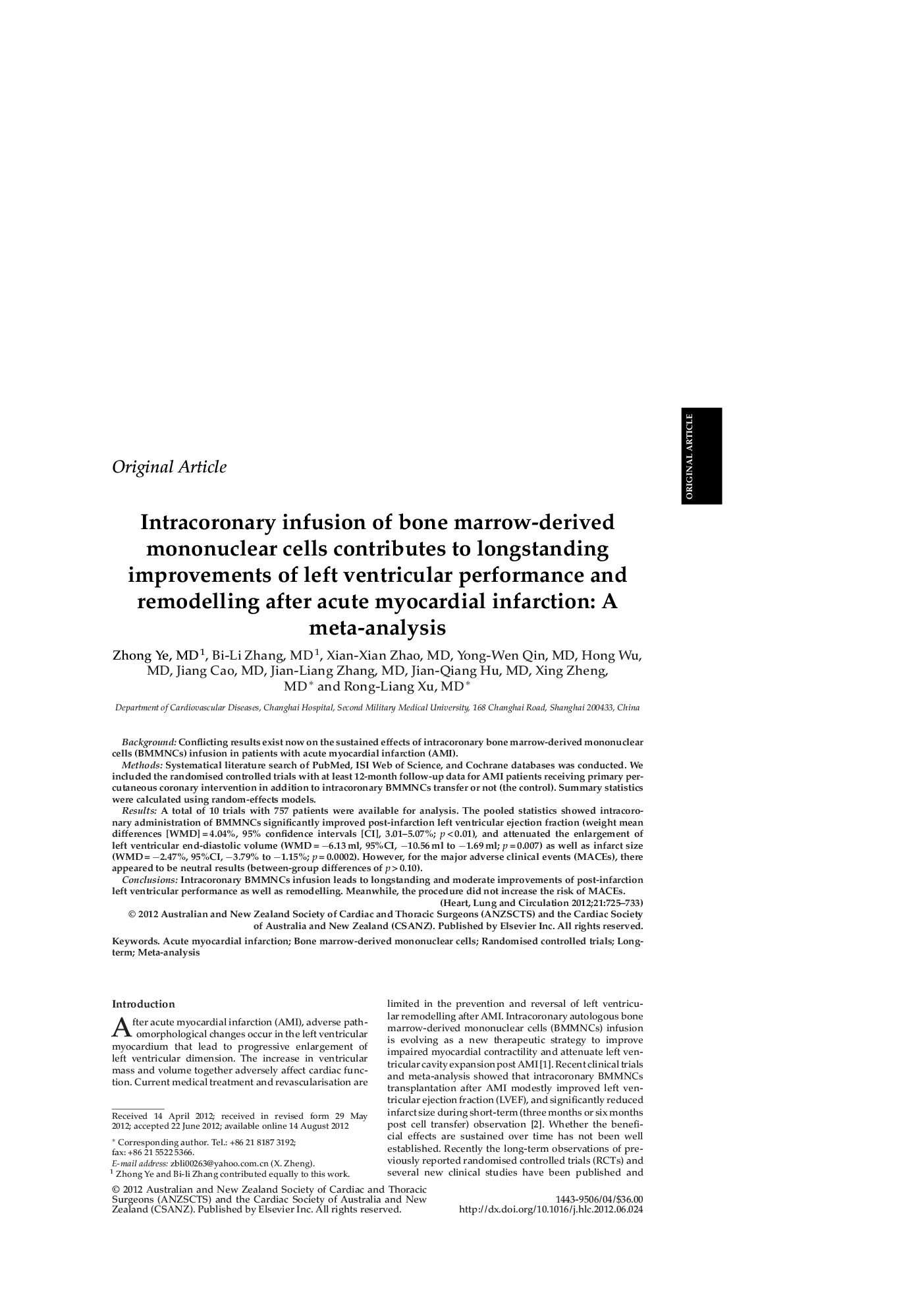| Article ID | Journal | Published Year | Pages | File Type |
|---|---|---|---|---|
| 2919229 | Heart, Lung and Circulation | 2012 | 9 Pages |
BackgroundConflicting results exist now on the sustained effects of intracoronary bone marrow-derived mononuclear cells (BMMNCs) infusion in patients with acute myocardial infarction (AMI).MethodsSystematical literature search of PubMed, ISI Web of Science, and Cochrane databases was conducted. We included the randomised controlled trials with at least 12-month follow-up data for AMI patients receiving primary percutaneous coronary intervention in addition to intracoronary BMMNCs transfer or not (the control). Summary statistics were calculated using random-effects models.ResultsA total of 10 trials with 757 patients were available for analysis. The pooled statistics showed intracoronary administration of BMMNCs significantly improved post-infarction left ventricular ejection fraction (weight mean differences [WMD] = 4.04%, 95% confidence intervals [CI], 3.01–5.07%; p < 0.01), and attenuated the enlargement of left ventricular end-diastolic volume (WMD = −6.13 ml, 95%CI, −10.56 ml to −1.69 ml; p = 0.007) as well as infarct size (WMD = −2.47%, 95%CI, −3.79% to −1.15%; p = 0.0002). However, for the major adverse clinical events (MACEs), there appeared to be neutral results (between-group differences of p > 0.10).ConclusionsIntracoronary BMMNCs infusion leads to longstanding and moderate improvements of post-infarction left ventricular performance as well as remodelling. Meanwhile, the procedure did not increase the risk of MACEs.
